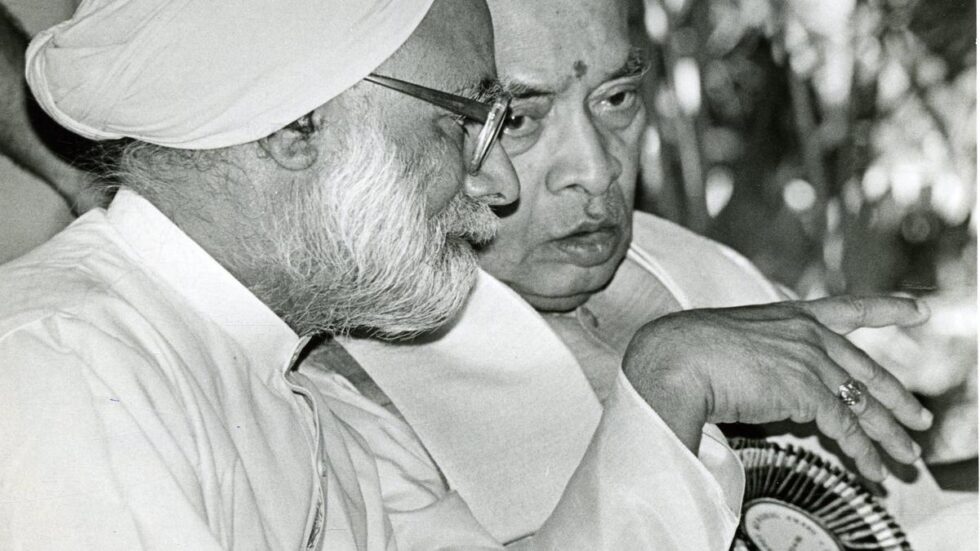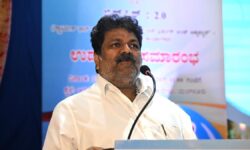
Former Prime Minister Manmohan Singh, who passed away last month, was embroiled in a controversy in his early years as a politician. A former Governor of the Reserve Bank of India, he was appointed as the Chairman of the University Grants Commission in 1991. However, within a few months, Prime Minister P.V. Narasimha Rao inducted him in his Cabinet as the Finance Minister. Shortly thereafter, he was elected to the Rajya Sabha from Assam.
At that time, the law mandated that to be elected to the Rajya Sabha from a State, the candidate must be a resident of that State. Singh had declared that he was a tenant in a house in Guwahati, belonging to former Assam Chief Minister Hiteswar Saikia. Before his election, he was not an ordinary resident of Assam.
Four representations
During September-October 1993, Kasturi Radhakrishnan, chairperson of an organisation called Madras Citizens Progressive Council, addressed four representations to the President seeking Singh’s disqualification from the Rajya Sabha. With no response forthcoming, Radhakrishnan moved the Madras High Court for a writ of mandamus directing the President to forward these representations and obtain the Election Commission’s opinion, in accordance with Article 103 (2) of the Constitution, on the issue of Singh’s disqualification. He argued that Singh could not claim to be “an ordinary resident” of Assam and therefore could not get himself enrolled as a voter in the State. Consequently, he must be considered to have incurred disqualification within the meaning of Article 102 (1) (e) of the Constitution.
Before entertaining the petition, the court took up three points for consideration. First, whether a writ of this nature could be maintained against the President in view of the immunity, and the consequent embargo, containing in Article 361 of the Constitution. Second, whether the petitioner could claim to have the locus to maintain a writ petition as a public interest litigation petition as it was made to appear. Third, whether any position or constructive allegation of disqualification within the meaning of Article 102 (1) (e) had been made, thus obliging the first respondent (the President) to take further action on the petitioner’s representations.
Counsel for the petitioner argued, citing case precedents, that upon an allegation of disqualification, the President had to obtain the Election Commission’s opinion before deciding the question. To a specific question from Justice Raju, who was hearing the case, counsel cited the case of a warrant of appointment of a High Court judge issued by the President being quashed and argued that hence there could no impediment for the court to entertaining the petition.
Immunity extended
Justice Raju, after examining the submissions, said, “In my view, the relief of the nature could not be sought for in this court in this writ petition, at any rate at this stage of proceedings.” The judge pointed out that Article 361 had been held to extend the immunity conferred on the President not only for acts done by him in the exercise of his functions but also for acts “purporting to be done” in exercise of his powers.
“The petitioner seeks for a specific direction to the first respondent, the President of India, to act in a particular manner in the discharge of his duties, and in my view, this is what that could not be done at the instance of the petitioner, in the teeth of Article 361… On the facts and circumstances of the case also, there is no scope or justification for assuming that the first respondent could be attributed with any lapse in discharging his duties merely on account of the fact that the response from the first respondent is not as expeditious or as expected by the petitioner, warranting the interference of this Court,” the judge observed.
Besides, the court was of the view that the petitioner had no locus to maintain the writ petition. The petitioner, who claimed to represent an association of Madras, “cannot claim to speak for or project the alleged grievance of the people of State of Assam, as if they are either disabled or unable to approach this court”. The judge felt that the petition appeared to be a mere publicity-oriented one.
‘Charge not substantiated’
“Finally, the petitioner has not also shown or substantiated before this Court that there is any disqualification specifically alleged in terms of Article 102 (1) (e)”, which would oblige the President to pursue action under Article 103 (2). “No doubt, the questions as to whether the alleged disqualification has been substantiated on merits or made out is not a matter to be decided by the Court initially or by the first respondent himself without securing the opinion of the Election Commission of India. But that does not mean that any and every petition even not involving or alleging any disqualification in terms of Article 102 (1) (e) requires to be pursued with further course of action contemplated under Article 103 (2)…,” the court held.
The judge said that neither in the representations nor in the affidavit was there any specific allegation or claim as to the incurring of the disqualification of the fourth respondent (Singh) under any law made by Parliament. The law relating to disqualification of an MP or MLA is contained in Sections 8, 8A, 9, 9A, 10, 10A and 11A of the Representation of the People Act. “It is not shown under which of the above provisions the fourth respondent could be said to have incurred disqualification warranting further action by the first respondent under Article 103 (2),” the judge pointed out. Therefore, “I am of the view that this writ petition does not merit acceptance by this Court, and therefore deserves to be summarily rejected, and it is accordingly rejected,” Justice Raju concluded.
In 2003, Parliament enacted legislation to do away with the domicile clause for election to the Rajya Sabha. Tamil Nadu Congress leader Su. Thirunavukkarasar was one of the earliest to get elected to the Upper House from another State in 2004 (Madhya Pradesh as the BJP candidate).







